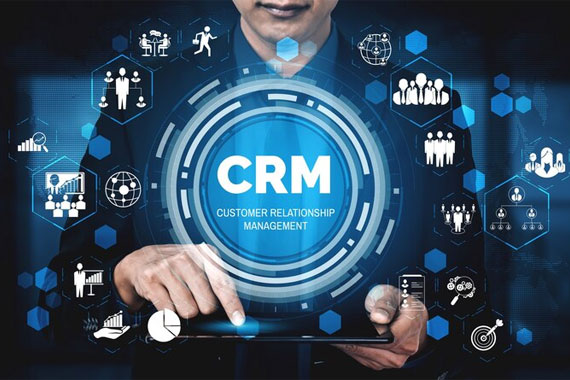10 Common Mistakes Small Businesses Make with a CRM Management System
In a constantly changing digital environment, small businesses need to apply intelligent tools to remain competitive in the market. One such indispensible tool is a CRM management system that maintains the flow of customer relations, sales tracking, and overall efficiency. Large establishments may have a CRM department, but for small businesses who juggle multiple roles, all such intricacies of proper management of a CRM platform can easily slip through the cracks.
At Matebiz Pvt Ltd, we believe a CRM management system constitutes the core for successful client engagement of any small business. Yet, an improper setup or ignoring essential factors in the implementation leads to a loss of CRM performance. The best part? Most of these are avoidable with awareness and proactive management.
In this blog, we sift through the ten most common mistakes made by small businesses while using a CRM management system, setting you up to spot and avoid them. This is a practical, honest, and helpful guide, whether you are new to CRM or just upgrading your current one.
2. Underutilizing the Sales CRM for Small Business
Even with the right platform, many businesses fail to use the full power of a sales CRM for small business. A CRM isn’t just for storing contacts—it’s a sales machine if used right.
Here’s what often gets neglected:
- Not setting up pipelines or tracking stages of deals.
- Failing to follow up with leads due to poor alert setup.
- Not using email automation or scheduling tools.
- Neglecting data analysis to understand customer behavior.
Avoid these common traps by:
- Regularly updating customer records.
- Using reminders and task assignments for follow-ups.
- Monitoring sales performance through CRM dashboards.
- Training staff to use key sales tools effectively.
Bulletproof your sales CRM for small business with the right habits, not just the right tools.
Read More: 10 Reasons Your Small Business Needs a Custom CRM Development Company Today
3. 10 Mistakes to Avoid When Using a CRM Management System
Let’s dig into the most common CRM missteps we see in small businesses:
- Lack of Clear Goals
- Many businesses jump into a CRM without defining what they want it to do. No goals = no direction = wasted time.
- Inconsistent Data Entry
- Inaccurate, incomplete, or inconsistent entries ruin the effectiveness of your CRM management system.
- Failure to Train Team Members
- A CRM is only as powerful as its users. If staff doesn’t know how to use it, it won’t work.
- Ignoring Automation Features
- Many powerful features go unused. Automate repetitive tasks to save time and improve accuracy.
- Poor Integration with Other Tools
- Your CRM should connect with email, marketing tools, and accounting software for smooth workflows.
- Not Using Reporting Tools
- Dashboards and analytics exist for a reason. Use them to make data-driven decisions.
- Overcomplicating the System
- More fields and complex settings don’t equal better results. Keep it simple.
- Failing to Update Contact Information
- Outdated data leads to missed opportunities and incorrect targeting.
- Not Segmenting Customers
- Every customer isn’t the same. Use CRM tools to segment based on behavior, purchase history, or demographics.
- No Regular Audits
- CRMs need checkups too. Regularly audit your CRM management system to clean up data and realign goals.
4. Wrapping It Up
Implementing a CRM management system can revolutionize how small businesses manage their relationships and sales processes. But ignoring key practices or falling into the traps listed above can stall or reverse your progress.
Avoid these mistakes, stay updated with new CRM features, and make your system work for you. With a focused approach, the right tools, and a bit of CRM discipline, your small business can compete at a big-business level.
Matebiz is committed to helping small businesses worldwide understand and implement CRM strategies effectively. Let your CRM management system become the heart of your customer engagement and sales efforts—efficient, smart, and error-free.
5. FAQ (Frequently Asked Questions)
- Do I need to train employees to use a CRM system?
Absolutely. A CRM is only as effective as the people using it. Matebiz Pvt Ltd recommends regular training to ensure staff can fully utilize all features and avoid misuse that leads to poor results.
- What industries benefit most from using a CRM Management System?
Almost all! From retail and services to healthcare and education, any small business that manages customers can benefit. Matebiz Pvt Ltd supports CRM implementation across diverse industries due to its flexibility and scalability.
- Do CRMs offer mobile access for teams on the go?
Yes. Most modern CRM Management Systems have mobile apps or browser access. Matebiz Pvt Ltd encourages using these to help sales and service teams stay connected anywhere.













